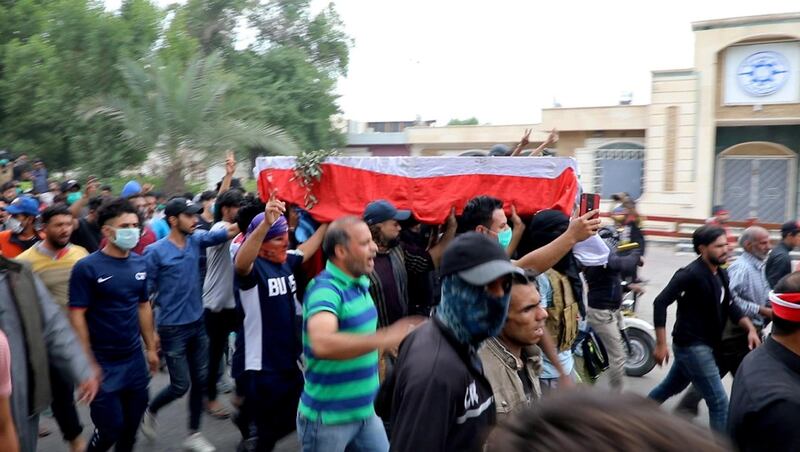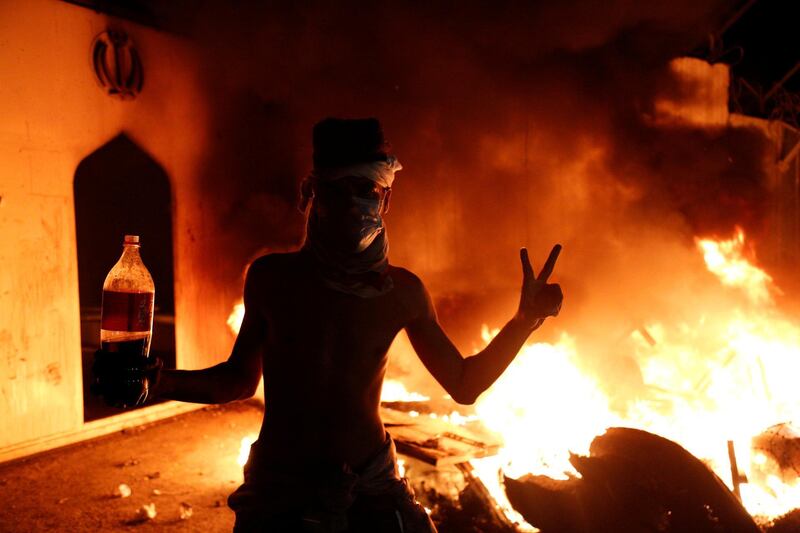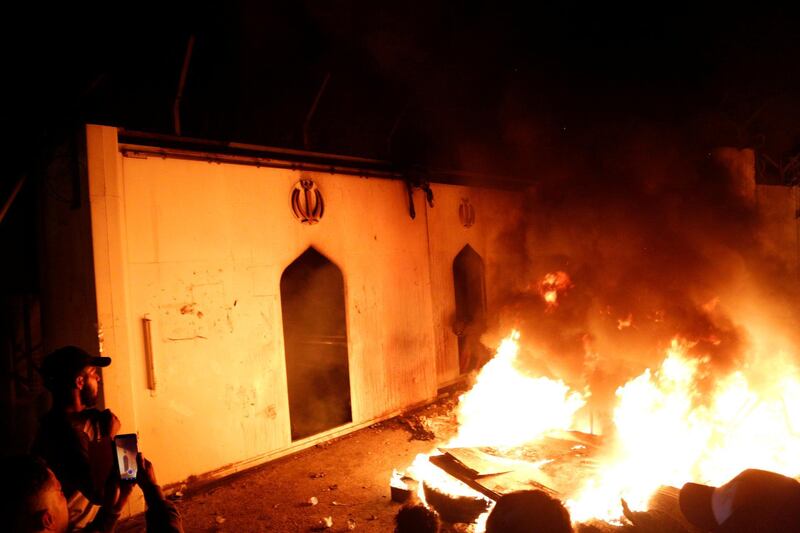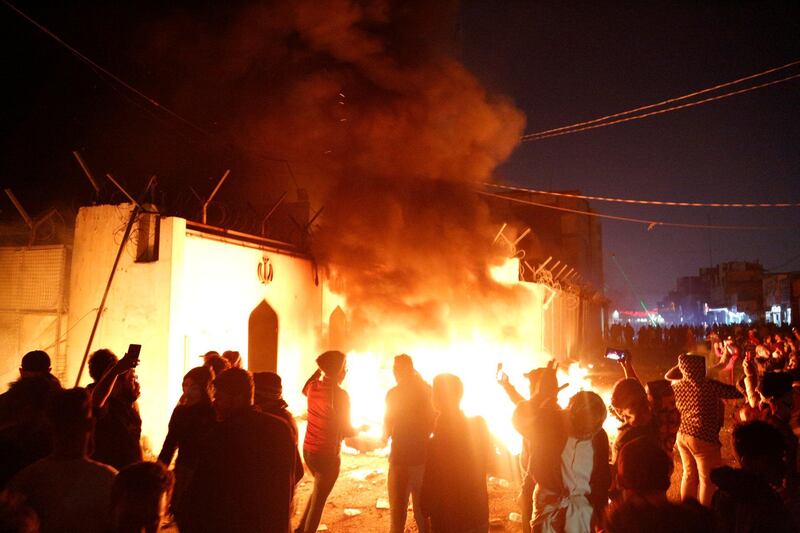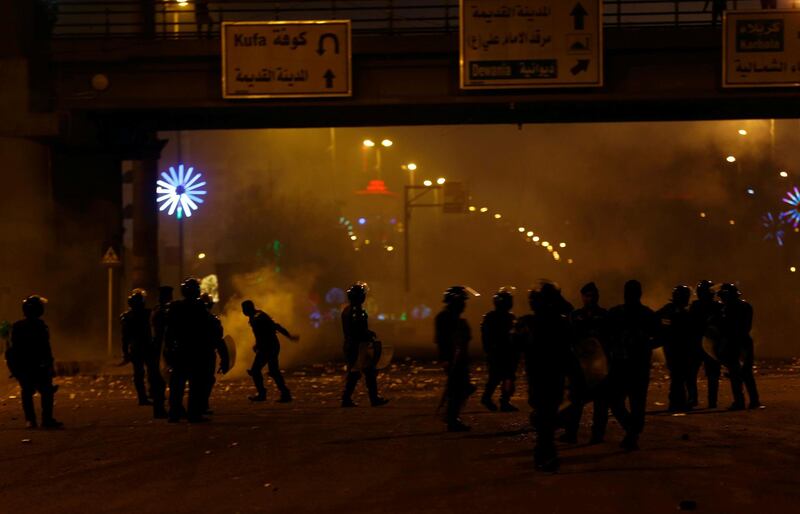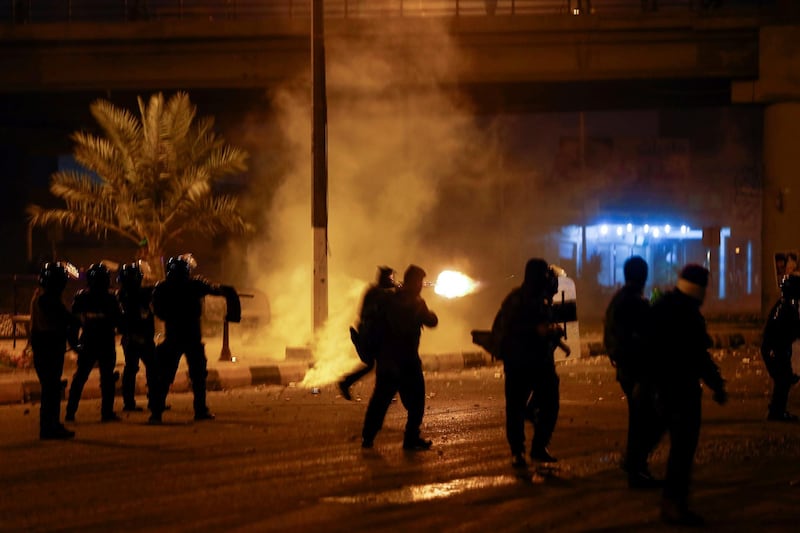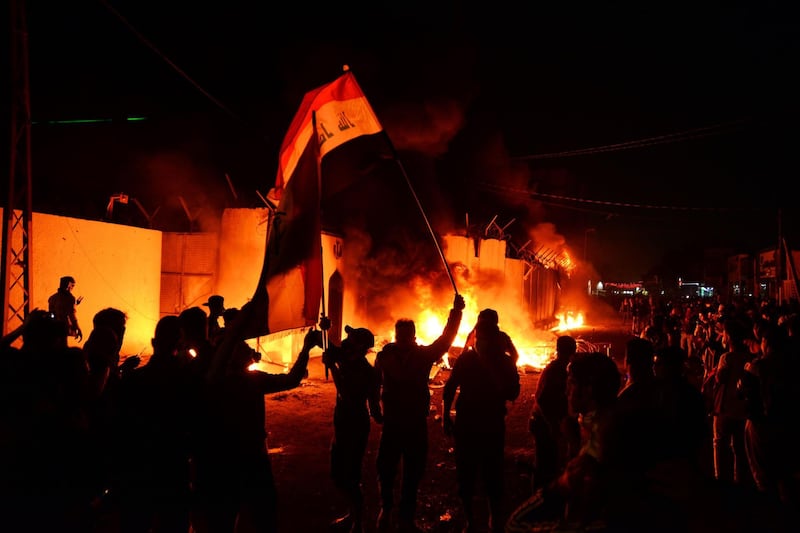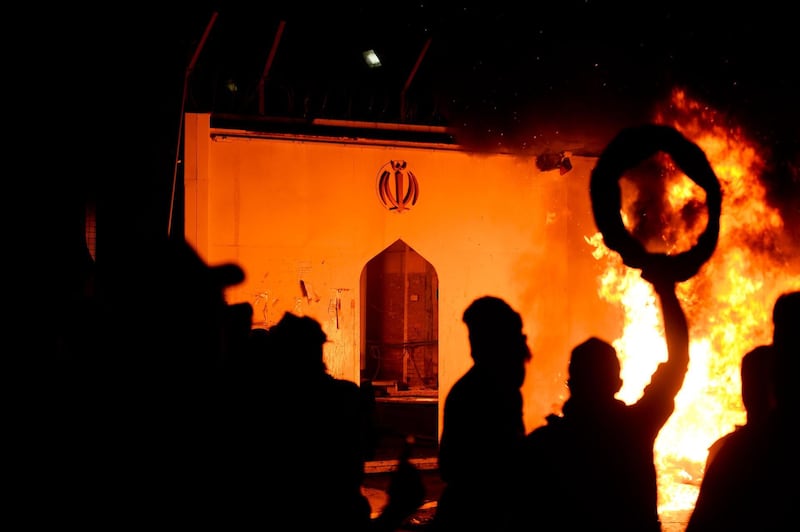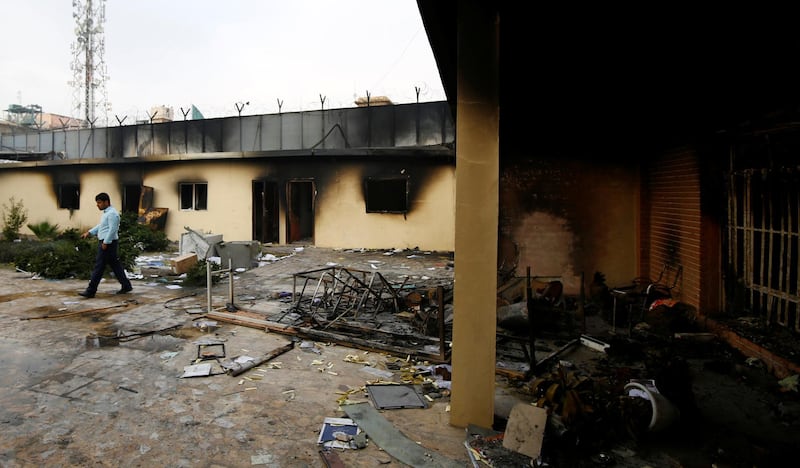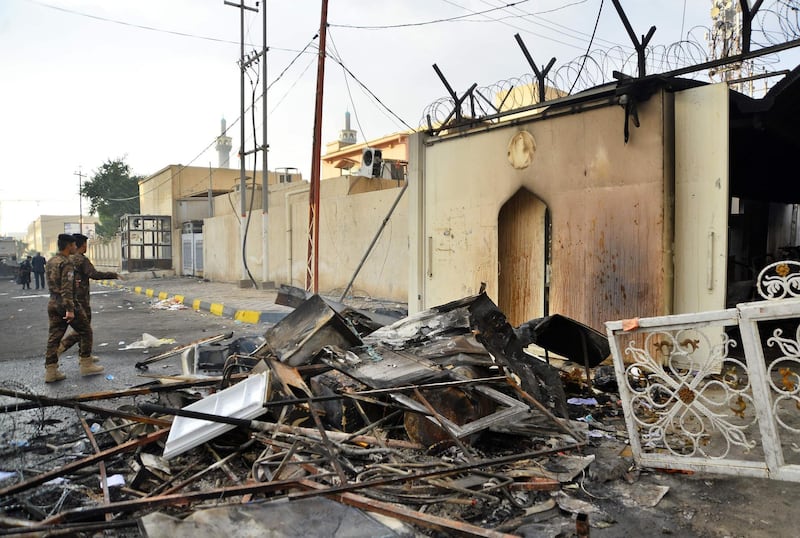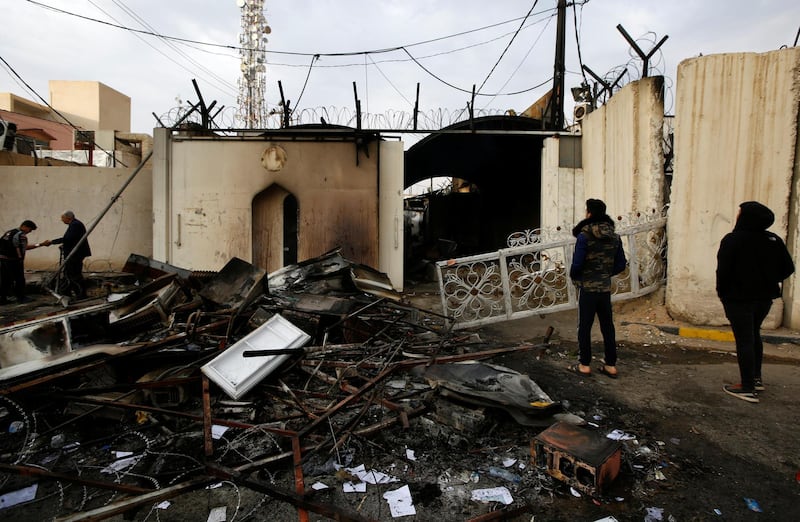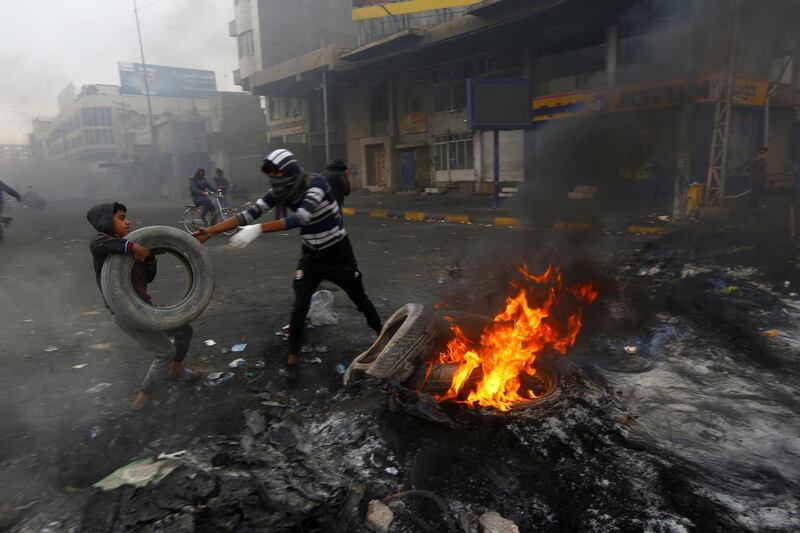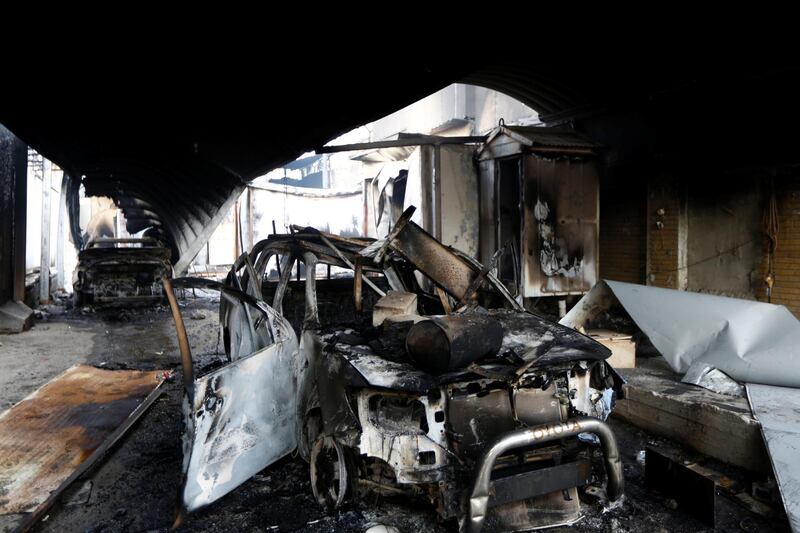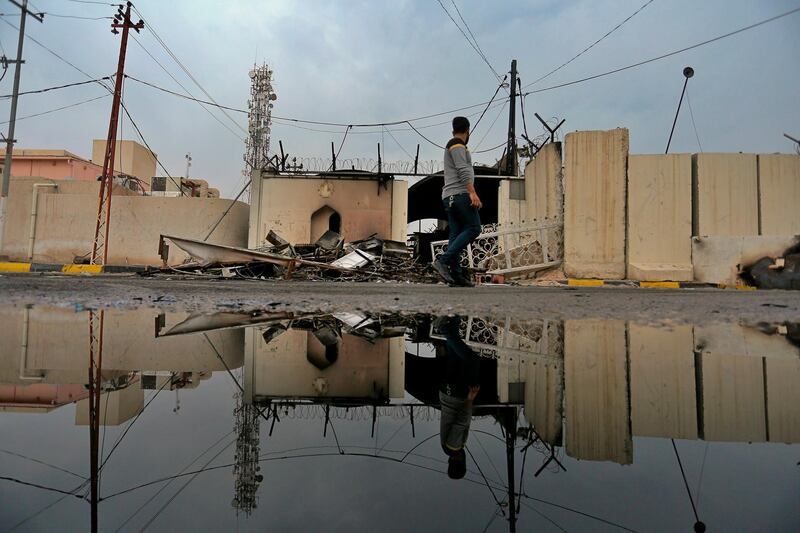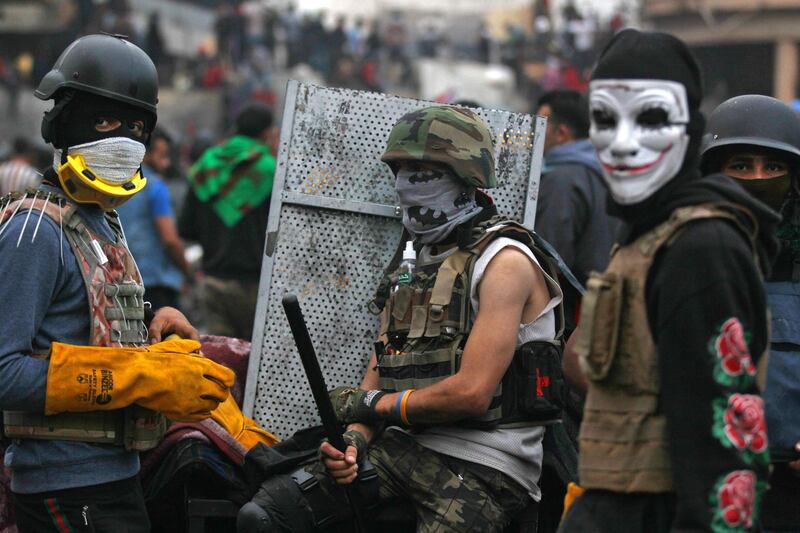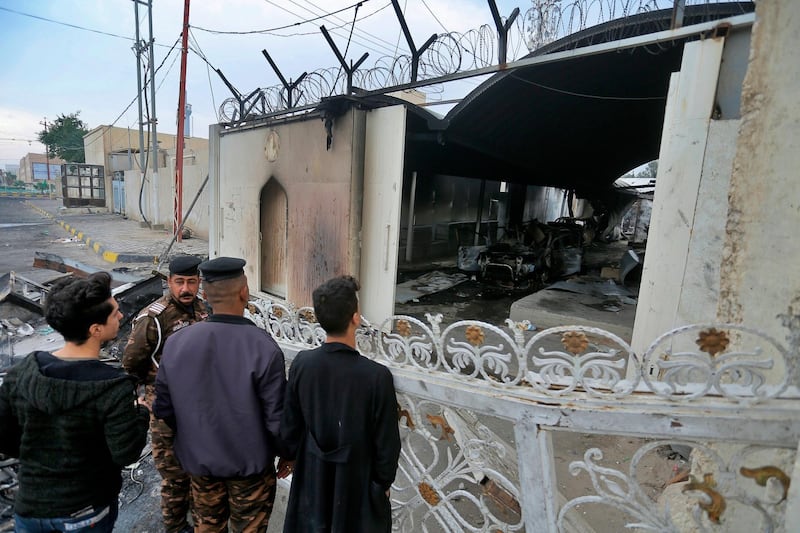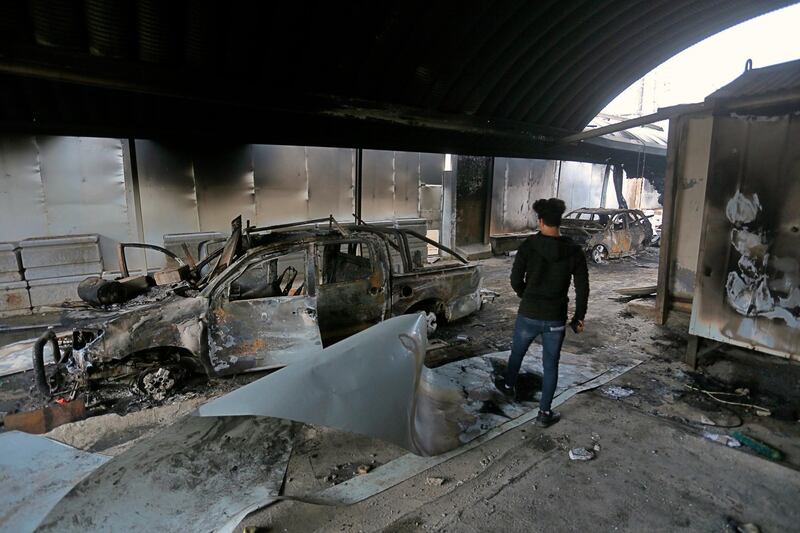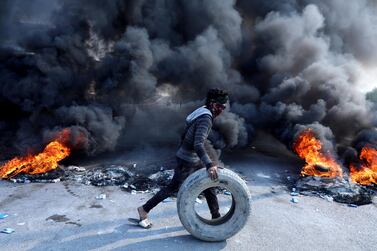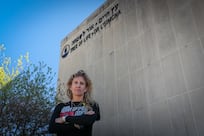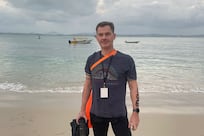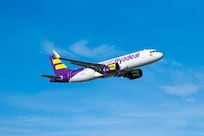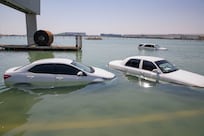Iraqi security forces killed at least 29 protesters in the city of Nasiriyah on Thursday after the government sent troops across southern Iraq in response to the torching of the Iranian consulate in Najaf.
More than 200 others were wounded in Nasiriyah as security forces opened fire on sit-ins, medics and security sources said.
Two more were killed in a security crackdown near the torched consulate in Najaf and four others died when troops opened fire with live ammunition on Ahrar Bridge in Baghdad.
It was one of the bloodiest days since anti-government protests resumed in late October.
Prime Minister Adel Abdul Mahdi sent military forces to restive provinces to "impose security and restore order", the army said, after Iran's demand for action over the consulate attack.
But by afternoon he had recalled the army commander sent to Nasiriyah, Gen Jamil Al Shammari, after the crackdown in the capital of Dhi Qar province.
Provincial governor Adel Al Dakhili demanded the sacking of Gen Al Shammari, who was the military commander in charge of Basra when demonstrations in the southern port city were brutally suppressed in 2018.
Hours later, state television announced that Mr Abdul Mahdi had ordered that the general be removed from the post.
Thousands of Nasiriyah's residents took to the streets for the funerals of the protesters, defying a curfew announced earlier in the day.
"We're staying until the regime falls and our demand are met," they chanted.
Demonstrators who had been dispersed by security forces regrouped at Nasiriyah's police station and set it on fire.
They then surrounded the local military headquarters as armed members of the area's influential tribes blocked motorways to prevent military reinforcements trying to reach the city.
The latest violence brought the death toll since early October to more 370, with more than 15,000 wounded, according to an AFP tally. Authorities are not releasing updated or precise figures.
Iraq's capital and the south have been torn by the worst street unrest since the 2003 US-led invasion that toppled Saddam Hussein.
Ordinary Iraqis have vented their fury at the government's failure to provide jobs and basic services, despite the country's oil wealth.
They have also directed their anger at neighbouring Iran for its influence over Iraqi politics.
Protesters shouting "Victory to Iraq" and "Iran out" stormed the Iranian consulate in Najaf on Wednesday night before setting it on fire. The Iranian staff were not harmed and escaped out the back door.
One demonstrator was killed and 35 hurt when police fired live bullets to stop them entering the consulate building.
A curfew was imposed in Najaf and security forces were heavily posted around main government buildings and religious institutions on Thursday.
The province is the headquarters of the country’s Shiite religious authority led by Grand Ayatollah Ali Al Sistani, who has been supportive of protesters' demands for political reforms to remove an entrenched and corrupt elite.
Tehran demanded Iraq take decisive action over that attack on the consulate, with Foreign Ministry spokesman Abbas Mousavi condemning the attack.
"Iran has officially communicated its disgust to the Iraq ambassador in Tehran," he said in comments carried by Iran's state news agency, Irna.
Iraq’s Foreign Ministry condemned the torching of the consulate, saying it was done by “people outside of the genuine protesters” to harm relations between Baghdad and Tehran.
Iran's consulate in the city of Karbala was targeted this month, and security forces defending the site shot dead four demonstrators at the time.
Iran and Iraq have close but complicated ties. They fought a devastating war in 1980-1988, but Iran now has significant sway among Iraqi political and military leaders.
Gen Qassem Suleimani of Iran's Revolutionary Guard has held several meetings in Baghdad and Najaf to convince political factions to close ranks around the government of Mr Abdul Mahdi, despite the people's calls for him to step down.
Those meetings paved the way for a brief crackdown in Baghdad and the south late last month but the protest movement has proved resilient.
Sit-ins, road closures and street marches have kept public offices and schools shut across many of Iraq's southern cities for weeks.
On Thursday, clashes broke out near the provincial headquarters of Karbala between about 200 protesters and riot police using tear gas and flash bangs.
Protesters kept up their sit-ins in Kut, Amara and Hilla, all south of the capital, despite a notably larger security presence.
In the oil-rich port city of Basra, most government offices reopened but schools stayed closed as security forces deployed in the streets.
Iraq is Opec's second-largest crude producer and the oil exported through Basra's offshore terminals funds more than 90 per cent of the government's budget.
Protesters have accused the ruling elite of embezzling for personal gain state funds that are desperately needed to restore failing public services and fix schools.
Corruption is rampant in Iraq, which is ranked the world's 12th most graft-ridden country by Transparency International.
One in five Iraqis lives in poverty and youth unemployment stands at 25 per cent, the World Bank says.
